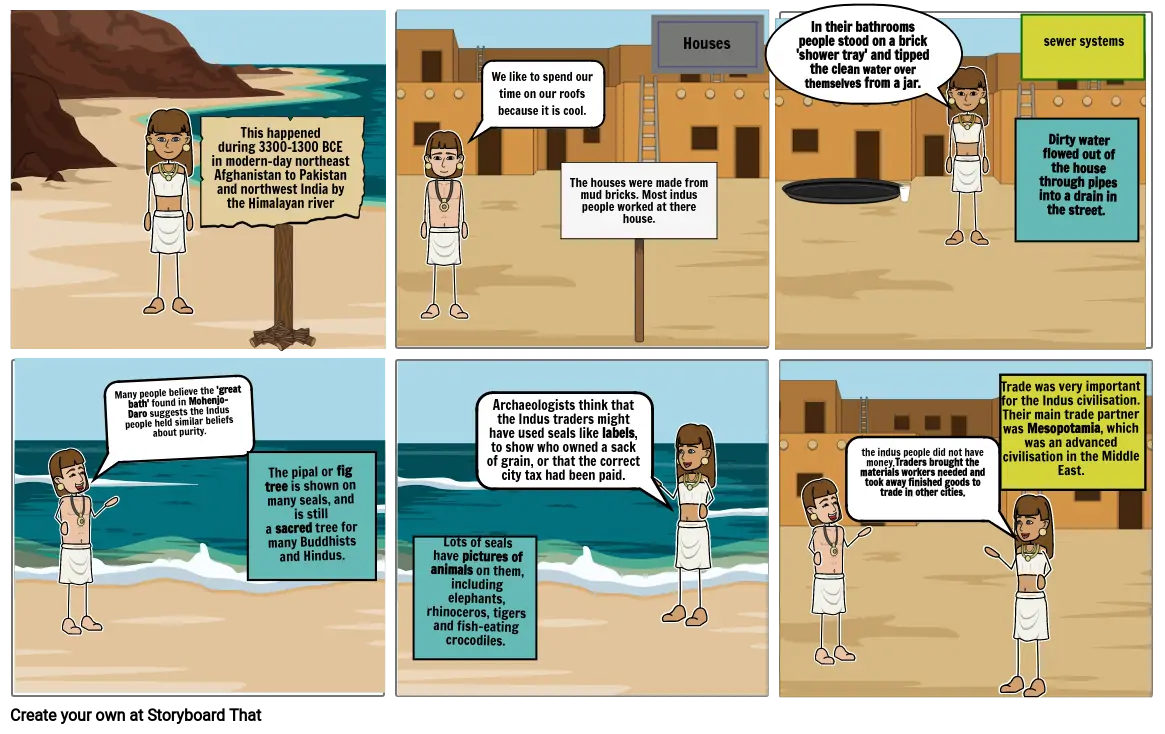Indus valley

Storyboard Tekst
- This happened during 3300-1300 BCE in modern-day northeast Afghanistan to Pakistan and northwest India by the Himalayan river
- We like to spend our time on our roofs because it is cool.
- The houses were made from mud bricks. Most indus people worked at there house.
- Houses
- In their bathrooms people stood on a brick 'shower tray' and tipped the clean water over themselves from a jar.
- Dirty water flowed out of the house through pipes into a drain in the street.
- sewer systems
- Many people believe the 'great bath' found in Mohenjo-Daro suggests the Indus people held similar beliefs about purity.
- The pipal or fig tree is shown on many seals, and is still a sacred tree for many Buddhists and Hindus.
- Lots of seals have pictures of animals on them, including elephants, rhinoceros, tigers and fish-eating crocodiles.
- Archaeologists think that the Indus traders might have used seals like labels, to show who owned a sack of grain, or that the correct city tax had been paid.
- the indus people did not have money.Traders brought the materials workers needed and took away finished goods to trade in other cities.
- Trade was very important for the Indus civilisation. Their main trade partner was Mesopotamia, which was an advanced civilisation in the Middle East.
Over 30 millioner storyboards opprettet

